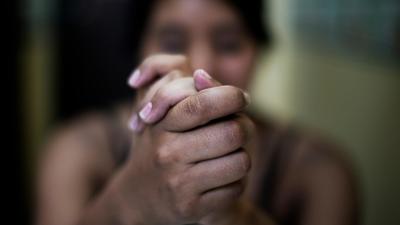A republic in Central America, Honduras – home to 8.7 million people - became independent from Spanish rule in 1821.
[[{"fid":"710","view_mode":"default","type":"media","link_text":null,"field_deltas":{"1":{}},"fields":{},"attributes":{"height":1249,"width":2138,"style":"width: 500px; height: 292px; margin: 5px; float: right;","class":"media-element file-default","data-delta":"1"}}]]
In 1998, Hurricane Mitch devastated the country with at least 5,000 people killed and 70 percent of the country's crops destroyed.
The damage was estimated at US$3 billion. The Honduran President at the time said 50 years of progress had been reversed.
Honduran society is rife with economic inequality. Malnutrition, poor housing and infant diseases are widespread.
It is also has the most dangerous city in the world – the murder rate in San Pedro Sula is 171 people per 100,000 per year. Yet, the medical consequences of violence are not considered as a public health emergency.
Médecins Sans Frontières/Doctors Without Borders (MSF) first worked in Honduras in 1974. In fact, our response to Hurricane Fifi-Orlene was our first long-term medical mission.
Our work in the country has since provided a response to armed conflict, social violence, healthcare exclusion and endemic/epidemic diseases.
[[Country-Facts]]
MSF's work in Honduras: 2015
Honduras has experienced years of political, economic and social instability, and has one the highest rates of violence in the world. This has medical, psychological and social consequences for Hondurans.
MSF continued its servicio prioritario or priority service in collaboration with the Honduran Ministry of Health, offering emergency medical and psychological care to victims of violence, including sexual violence. This free, confidential one-stop service is available at two health centres and in Tegucigalpa’s main hospital.
[[nid:421]]
Treating survivors of sexual violence
In 2015, MSF treated 1,367 victims of violence, including 593 victims of sexual violence, and carried out 1,436 mental health consultations. Medical treatment for rape includes post-exposure prophylaxis to prevent HIV infection and provide protection against other sexually transmitted infections, hepatitis B and tetanus.
The mental healthcare includes counselling and psychological first aid. MSF has also been involved in training and sensitising medical staff to the needs of victims of sexual violence, and ensuring the necessary human resources are available.
[[{"fid":"824","view_mode":"default","type":"media","link_text":null,"field_deltas":{"1":{}},"fields":{},"attributes":{"height":667,"width":1000,"style":"margin-top: 10px; margin-bottom: 10px;","class":"media-element image-full-width file-default","data-delta":"1"}}]]The emergency contraceptive pill remains banned in Honduras, despite ongoing debate in the Honduran Congress to change the policy on emergency contraception.
MSF continues to advocate for access to medical care for victims of sexual violence (including emergency contraception) that is in accordance with international protocols. MSF has highlighted the psychological and medical consequences of pregnancy as a result of sexual assault.
Find out more in our 2015 International Activity Report



